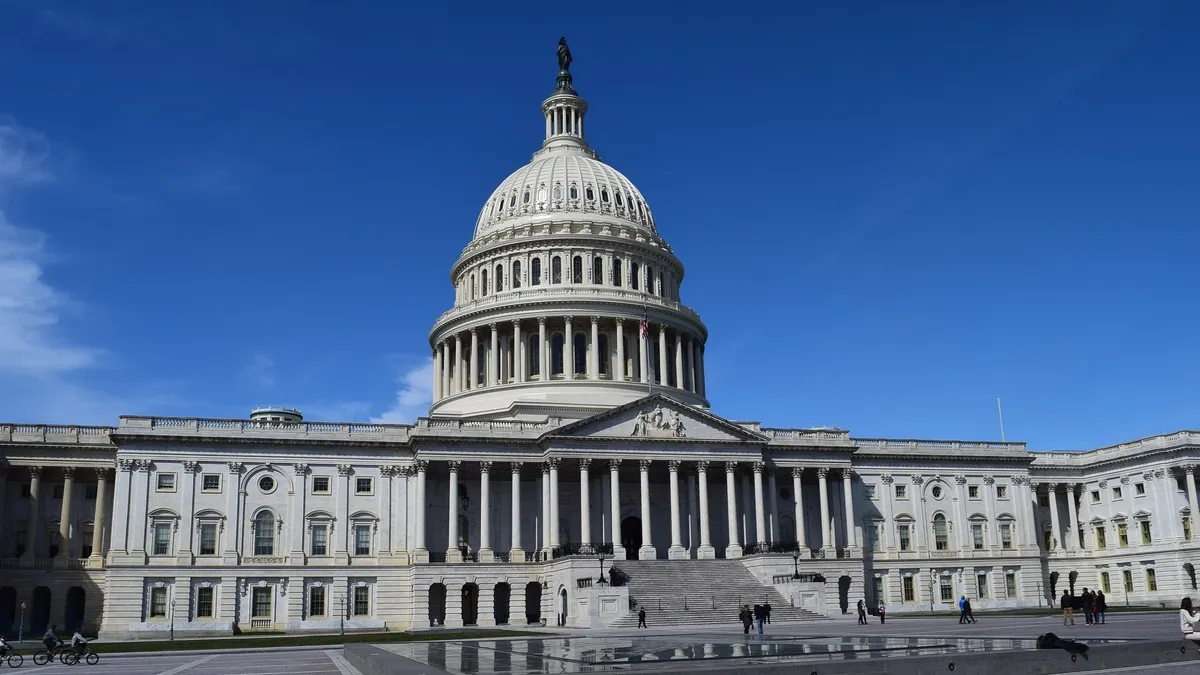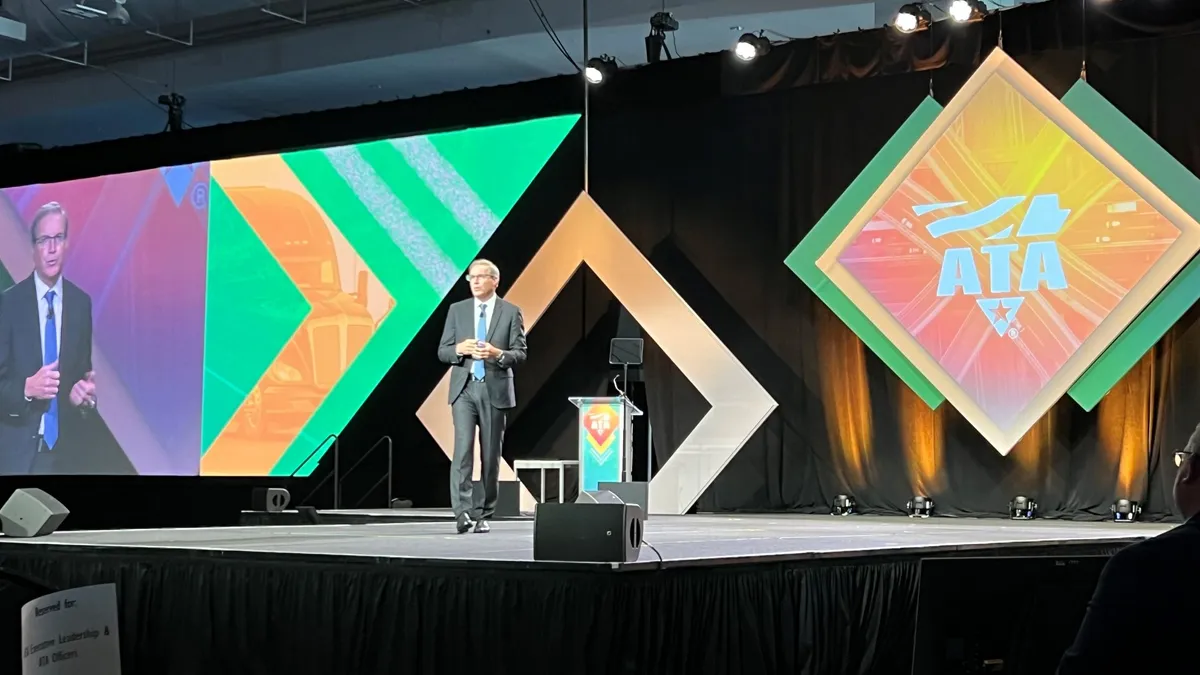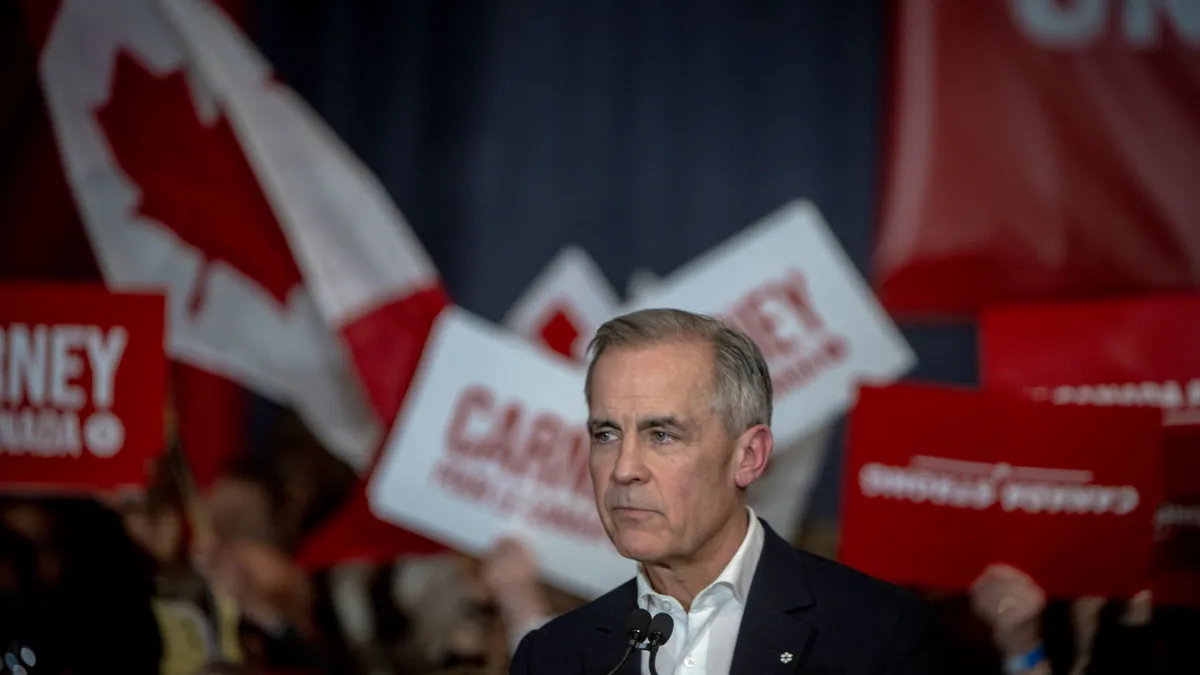House Democrats unveiled an infrastructure bill Wednesday that would authorize $494 billion in funding over five years. But the new bill, which includes language that specifically delays the implementation of the FMCSA's final HOS rule, has been met with opposition from Republicans and mixed reviews from the trucking industry.
Called the Investing in a New Vision for the Environment and Surface Transportation in America (INVEST in America) Act, the bill was introduced by leading Democrats on the House Transportation and Infrastructure Committee. This move is in preparation for the Sept. 30 expiration of the current infrastructure funding vehicle, the Fixing America's Surface Transportation Act (FAST Act).
If passed in its current form, the INVEST in America Act would authorize $411 billion from the Highway Trust Fund on improvements to highways, transit, safety and research, and $60 billion on rail, over five years. Those figures represent a 46% and 400% increase, respectively, over current spending levels under the FAST Act.
The Owner-Operator Independent Drivers Association's (OOIDA) media platform, Land Line, said the group "takes particular issue" with provisions in the bill that would make the DOT's Compliance, Safety and Accountability (CSA) program scores available to the public, as they were before the FAST Act was implemented, "before the system has been perfected," Land Line reported.
Land Line said the association "also opposes provisions to further legitimize oral fluids testing," as well as the HOS final rule delay. According to the bill text, the final rule wouldn't be allowed to kick in until the Secretary of Transportation submits a review of it to Congress.
The INVEST in America Act calls on the secretary to, in consultation with state DOTs, analyze waivers or other allowances that would exempt drivers from the final HOS rule, with the goal of determining "the safety impact, including on enforcements" of the rule, the bill states. The review would use available data, or order data to be collected from fleets and drivers operating under such exemptions, to "determine the incidence of accidents, fatigue-related incidents" and other relevant safety information.
This comprehensive review would need to begin no more than 60 days after the bill is signed into law, and be available for public comment in no more than 18 months after it begins. Then, the final HOS rule would become effective 60 days after the review is submitted to Congress.
“This draft legislation contains significant investment in our country’s roads and bridges," American Trucking Associations President and CEO Chris Spear said in a statement Wednesday. "And while we may not agree on every provision therein, this is a real and commendable step on the part of the committee to advance the process in the House and ultimately arrive at a negotiable solution with the Senate."
One major tenet of the bill is restoring the nation’s transportation infrastructure to a state of good repair, in part by addressing transit’s $100 billion maintenance backlog. The bill also provides grants for alternative fuels and electrification, and looks to address the effects of climate change through enhancing resiliency and using more modern building materials.
"It would be a dereliction of duty if we were not referencing climate change in a 21st-century transportation bill," Subcommittee on Highways and Transit Chair Eleanor Holmes Norton, a democrat from Washington, D.C., said on a call with reporters.
The bill would also provide funding to Complete Streets programs in a bid to enhance street safety, and would provide $250 million in grants to encourage local governments to innovate and cut congestion.
The committee is expected to mark up the bill in two weeks. It would then hit the House floor for a vote in early July. But Republicans on the committee are unconvinced by the plan, calling it "partisan" and saying it would add uncertainty to transportation given the disruption of COVID-19, among other problems.
"[T]oday's partisan bill lacks critical flexibility for the states, its outsized funding increases for urban areas will leave rural America even further behind, and numerous new green mandates and extreme progressive goals are woven throughout the fabric of new and existing core programs," Republican committee and subcommittee leaders wrote in a joint statement.
In an interview with Politico on Wednesday, U.S. Secretary of Transportation Elaine Chao said the Trump administration, which first issued infrastructure principles in Feb. 2018 but has seen plans flounder since, believes any infrastructure package should be bipartisan. She said while Congress has eased some of the financial burden, more must be done, with FAST Act reauthorization "another vehicle" for investment.
Chao added that any infrastructure package needs to look beyond "shovel-ready" projects, which have come under fire in previous stimulus plans. "We need a coordinated, long-term plan to address the infrastructure needs of our country," Chao said in the interview.





















